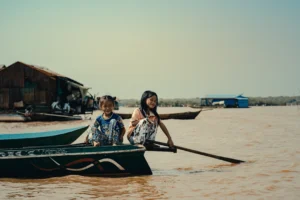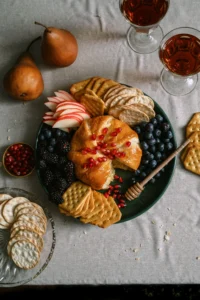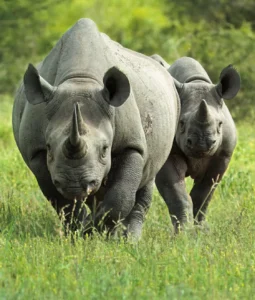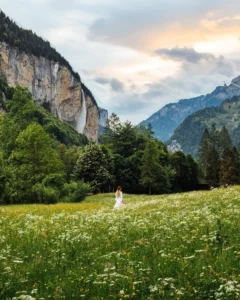
If anyone’s listening and they’re curious about getting off social, I can assure you there’s a wonderful and vibrant world out here without it, and I haven’t missed it at all.
David duChemin
You can also listen to this episode on iTunes, Pocket Casts, Spotify, Castbox, and Google Podcasts.
Step into the frame of endless inspiration – join our photography community today!

Humanitarian photographer, author, and educator David duChemin is the star of this week’s episode! David has an impressive collection of
We talk about:
- Why David duChemin quit social media and how that decision affected his work
- How to find your voice as a photographer
- His comedy background and the effect it has had on his current work
& much more!
David has a clear vision and a great set of skills to help bring that vision to life. He gives very thoughtful and interesting answers in this conversation, so make sure to give it a listen. No matter what genre of
Here is a preview of our conversation with David duChemin.

Q: You stopped using social media two years ago. How did that affect your business and your photography ?
David duChemin: Only in positive ways. First of all, it was not an easy decision. I wrestled with it for another two years leading up to my decision when I finally pulled the pin. I don’t compare myself anymore. I’m not discouraged by going on to other people’s feeds and looking at their amazing work – and they’re bragging about awards – and then looking at mine and going, “Well, gosh, why isn’t mine like that?” Well, mine is fine like that, because I’m not them.
What you see in social is only a visible metric that hides an incredible variety of invisible struggles and challenges. There’s so much we don’t see, but we still compare all of what we feel with only this thin, visible layer on someone else’s feed. I think social can be very discouraging. It can set you running in a million different directions.
There’s a positive side to that because it encourages you to learn, and that’s good. It was unhealthy for me. I was tracking my time and realising I could gain, in little bits and pieces over a day, two hours by not being on social. So I thought, “I’ll commit to being off social for a year.” I didn’t say that to anyone. I just said I was done, but I thought that if I needed to, I’d come back.
Everything that I gained vastly offsets any losses. It hasn’t affected my business in a negative way. Here’s the beautiful thing about social: people can still talk about you on social, even if you’re not there yourself. They can still talk about your work, they can read, they can tweet your quotes, they can engage. You are still being talked about on social even if you’re not there.
I’m paying more attention to my email and personal connections. People can still reach out. People can still comment on my blog, which has good engagement. I hate to use the words ‘fans’ and ‘followers’, but I talk to people who want to engage with me. Every day. I just do it in a different medium. When you’re in social, you feel like this is the world, like if you left social, you would leave the world. It turns out the world’s still there. We’re all still going on without social, just perfectly happily.
I think everyone needs to weigh the pros and cons. Do you have the time? Is it affecting your creativity? What’s it doing to your sense of individuality?

Q: How has your background in comedy affected your career as a photographer?
David duChemin: I talked earlier about my interest in the human side of
That same thing has happened to my

It’s not paint by numbers by any means, but it’s just a recognition of what actually works, like being able to put words to it. If you can put words to it, you can think about it in clearer ways.
Comedy is about people. I didn’t do pure stand-up. I did a mix of stand-up, juggling, and magic. It’s very easy for a variety of artists to rely on the gimmick of the magic trick. People don’t respond to magic tricks. It’s the surprise, the wonder, and the mystery that they’re responding to. When they laugh, is it because you strung your words together in a certain order, or is it because there’s something else going on there?
This would be my big advice to younger photographers: the sooner you can stop studying your cameras and start studying actual photographs and what makes them do what they do in terms of our experience of them, the sooner you’ll become a stronger and more intentional photographer. To create an analogy, it’s like people that collect guitars. There are some people who collect guitars, and there are people who make music with them. You can study guitars for an entire lifetime and never really understand what it means to be on a stage in front of 1000 people and make them feel something. Those are two very different things. And so it is with photographers.
The sooner we can get beyond the camera and start thinking about the actual thing that we’re making, which is photographs and the experience of them, the stronger that work can be.

Q: What’s something that you’ve been enjoying outside of photography lately?
David duChemin: I wear a number of different hats. Creatively, I love writing. I write non-fiction stuff. I write about the art and craft of
It’s so different than
My identity is not wrapped up in the fact that I am a photographer. I’m a creative person who uses
I’m as attracted to creativity just as an end as I am to the means to that end: the

Follow David duChemin’s Work
Website
Craft & Vision
Instagram









